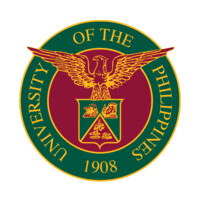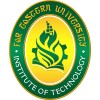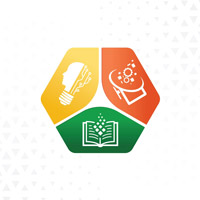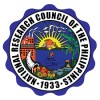Manuel B. Garcia
AssociateFounding Director of Educational Innovation and Technology Hub at FEU Institute of Technology
Valenzuela, Metro Manila · FEU Institute of Technology
Among the Top Viewed Profiles this Week
Personal Information
Short Biography
Manuel B. Garcia is a professor of information technology and the founding director of the Educational Innovation and Technology Hub (EdITH) at FEU Institute of Technology, Manila, Philippines. He holds a Doctor of Information Technology degree from the University of the East and is currently pursuing a Doctor of Philosophy in Education at the University of the Philippines. His interdisciplinary research interests include topics that, individually or collectively, span the disciplines of education and information technology. He is a licensed professional teacher and a proud member of the National Research Council of the Philippines – an attached agency to the country's Department of Science and Technology (DOST-NRCP). Dr. Garcia is the first-ever recipient of the Ramon Dimacali Award for Information Technology, conferred by the Philippine Association for the Advancement of Science and Technology, and has been recognized as one of the World's Top 2% Scientists for 2023 and 2024.
Skills
Graphic Design
Expert (85%)
Research Writing
Expert (90%)
Web Development
Master (95%)
Adobe Photoshop
Master (100%)
Web Design
Master (95%)
Educational Qualification

Doctoral · Feb 2022 - Present
Doctor of Philosophy in Education
Research and Evaluation · University of the Philippines Diliman

Doctoral · Jan 2017 - Aug 2022
Doctor of Information Technology
Information Technology · University of the East - Manila

Masteral · Jun 2014 - May 2016
Master in Information Technology
Information Technology · STI College Cubao

Tertiary · Jun 2009 - May 2013
Bachelor of Science in Industrial Education
Computer Education · Technological University of the Philippines

Secondary · Jun 2005 - Mar 2009
Valenzuela National High School
Work Experience

Full-time · Sep 2022 - Present (2 years and 9 months)
Founding Director at FEU Institute of Technology
Educational Innovation and Technology Hub

Full-time · Mar 2018 - Present (7 years and 3 months)
Professor at FEU Institute of Technology
College of Computer Studies and Multimedia Arts

Full-time · Mar 2017 - Mar 2018 (1 year)
Department Head at STI College Taft
Information Technology Department

Full-time · Jun 2014 - Mar 2017 (2 years and 9 months)
Information Technology Instructor at STI College Taft
Information Technology Department

Full-time · Jun 2013 - Mar 2014 (9 months)
Information Technology Instructor at STI College Caloocan
Information Technology Department
Honors and Awards

World's Top 2% Scientists 2024
Issued by Elsevier on September 16, 2024

Ramon Dimacali Award for Information Technology
Issued by Philippine Association for the Advancement of Science and Technology on September 09, 2024

Champion
Gold Award (Teaching & Learning Innovation Product Pitching Competition)
Issued by International E-Content Development Competition 2024 on August 22, 2024

Best Paper (Learning Management System and Educational Software Application Track)
Issued by 2024 8th International Conference on Education and Multimedia Technology on June 24, 2024

Research Excellence Awardee 2023
Issued by FEU Institute of Technology on December 15, 2023
Licenses and Certifications

Microsoft Innovative Educator Expert 2024-2025
Issued by Microsoft on September 07, 2024


Adobe Certified Professional in Visual Design Using Adobe Photoshop
Issued by Adobe on March 08, 2024
View Credential
Author/Writer
Issued by National Book Development Board on February 29, 2024

Research Methods Microspecialization Pathway
Issued by Development Academy of the Philippines on October 05, 2023
Seminars and Trainings

Speaker
Bigkis: The 1st Consortium of NSTP Implementers in the City of Manila
Awarded by FEU Institute of Technology on October 04, 2024

Attendee
ISO 9001:2015 Retooling
Awarded by FEU Tech Quality Assurance Office on October 03, 2024
View Credential
Attendee
Mastering 5S: Enhancing Workplace Efficiency and Organization
Awarded by FEU Tech Quality Assurance Office on September 23, 2024
View Credential
Attendee
AI in the Workplace: Practical Applications for Educators and Associates to Improve Teaching and School Management
Awarded by Educational Innovation and Technology Hub on August 14, 2024
View Credential
Attendee
Data Privacy Act Awareness Seminar
Awarded by FEU Tech Human Resources Office on July 08, 2024
View CredentialOrganizations and Memberships

National Research Council of the Philippines
Regular Member · February 23, 2022 - Present

National Research Council of the Philippines
Associate Member · August 17, 2021 - February 23, 2022
Research Publications
Article · DOI: 10.1007/s11528-025-01060-6
Venturing into the Unknown: Critical Insights into Grey Areas and Pioneering Future Directions in Educational Generative AI Research
TechTrends, 2025
![]() Xiao J.
Xiao J.
![]() Bozkurt A.
Bozkurt A.
![]() Nichols M.
Nichols M.
![]() Pazurek A.
Pazurek A.
![]() Stracke C.M.
Stracke C.M.
![]() Bai J.Y.H.
Bai J.Y.H.
![]() Farrow R.
Farrow R.
![]() Mulligan D.
Mulligan D.
![]() Nerantzi C.
Nerantzi C.
![]() Sharma R.C.
Sharma R.C.
![]() Singh L.
Singh L.
![]() Frumin I.
Frumin I.
![]() Swindell A.
Swindell A.
![]() Honeychurch S.
Honeychurch S.
![]() Bond M.
Bond M.
![]() Dron J.
Dron J.
![]() Moore S.
Moore S.
![]() Leng J.
Leng J.
![]() van Tryon P.J.S.
van Tryon P.J.S.
![]() Manuel B. Garcia
Manuel B. Garcia
![]() Terentev E.
Terentev E.
![]() Tlili A.
Tlili A.
![]() Chiu T.K.F.
Chiu T.K.F.
![]() Hodges C.B.
Hodges C.B.
![]() Jandric P.
Jandric P.
![]() Sidorkin A.
Sidorkin A.
![]() Crompton H.
Crompton H.
![]() Hrastinski S.
Hrastinski S.
![]() Koutropoulos A.
Koutropoulos A.
![]() Cukurova M.
Cukurova M.
![]() Shea P.
Shea P.
![]() Watson S.
Watson S.
![]() Zhang K.
Zhang K.
![]() Lee K.
Lee K.
![]() Costello E.
Costello E.
![]() Sharples M.
Sharples M.
![]() Vorochkov A.
Vorochkov A.
![]() Alexander B.
Alexander B.
![]() Bali M.
Bali M.
![]() Moore R.L.
Moore R.L.
![]() Zawacki-Richter O.
Zawacki-Richter O.
![]() Asino T.I.
Asino T.I.
![]() Huijser H.
Huijser H.
![]() Zheng C.
Zheng C.
![]() Sani-Bozkurt S.
Sani-Bozkurt S.
![]() Duart J.M.
Duart J.M.
![]() Themeli C.
Themeli C.
Advocates of AI in Education (AIEd) assert that the current generation of technologies, collectively dubbed artificial intelligence, including generative artificial intelligence (GenAI), promise results that can transform our conceptions of what education looks like. Therefore, it is imperative to investigate how educators perceive GenAI and its potential use and future impact on education. Adopting the methodology of collective writing as an inquiry, this study reports on the participating educators’ perceived grey areas (i.e. issues that are unclear and/or controversial) and recommendations on future research. The grey areas reported cover decision-making on the use of GenAI, AI ethics, appropriate levels of use of GenAI in education, impact on learning and teaching, policy, data, GenAI outputs, humans in the loop and public–private partnerships. Recommended directions for future research include learning and teaching, ethical and legal implications, ownership/authorship, funding, technology, research support, AI metaphor and types of research. Each theme or subtheme is presented in the form of a statement, followed by a justification. These findings serve as a call to action to encourage a continuing debate around GenAI and to engage more educators in research. The paper concludes that unless we can ask the right questions now, we may find that, in the pursuit of greater efficiency, we have lost the very essence of what it means to educate and learn.
Article · DOI: 10.1080/10494820.2025.2462144
Teachers in the metaverse: the influence of avatar appearance and behavioral realism on perceptions of instructor credibility and teaching effectiveness
Interactive Learning Environments, 2025
Teaching in the metaverse presents a dynamic frontier for educational innovation. Avatars, serving as digital representations of teachers, play a pivotal role in shaping virtual learning experiences. This study explores the impact of avatar design and behavioral realism on student perceptions of credibility and teaching effectiveness in avatar-mediated environments. True experimental research with a 2 × 2 factorial design was conducted involving students from three campuses. Across all experimental conditions, students consistently favored realistic avatars over cartoonish ones. A crisscross pattern emerged in relation to behavioral realism. Cartoonish avatars exhibiting realistic behaviors received higher ratings for instructor credibility but not for teaching effectiveness, whereas realistic avatars with the same gestures received higher ratings for teaching effectiveness but not for instructor credibility. From an educational standpoint, leveraging realistic avatars with authentic behaviors holds great promise for enhancing the teaching and learning experiences in the metaverse. Overall, this study contributes to the growing body of literature on educational metaverse and avatar-mediated teaching and learning by shedding light on the importance of avatar design and behavioral realism in shaping student perceptions and experiences.
Book Chapter · DOI: 10.4018/979-8-3693-5633-3.ch001
Understanding student engagement in AI-powered online learning platforms: A narrative review of key theories and models
Cases on Enhancing P-16 Student Engagement With Digital Technologies, 2024, 1-30
![]() Manuel B. Garcia
Manuel B. Garcia
![]() Goi C.L.
Goi C.L.
![]() Shively K.
Shively K.
![]() Maher D.
Maher D.
![]() Rosak-Szyrocka J.
Rosak-Szyrocka J.
![]() Happonen A.
Happonen A.
![]() Bozkurt A.
Bozkurt A.
![]() Damaševicius R.
Damaševicius R.
Online learning has become fundamental to modern academic and professional development. Amidst its widespread adoption, there is increasing integration of artificial intelligence (AI) to enhance the learning experience. Understanding student engagement within these AI-powered digital platforms is crucial, as it directly influences learning outcomes and satisfaction. This chapter provides a narrative review of key theories and models essential for analyzing engagement in virtual learning contexts. Particularly, it focuses on constructivist learning theory, social learning theory, cognitive load theory, flow theory, technology acceptance model, self-determination theory, cognitive theory of multimedia learning, and feedback intervention theory. By examining these frameworks through an epistemological lens, the chapter explores how knowledge acquisition, cognitive processing, and social learning principles interact within AI-enhanced educational contexts. The insights reported here can serve as a guide for optimizing AI to maximize student involvement and educational efficacy.
Article · DOI: 10.55982/openpraxis.16.4.777
The Manifesto for Teaching and Learning in a Time of Generative AI: A Critical Collective Stance to Better Navigate the Future
Open Praxis, 2024, 16(4), 487-513
![]() Bozkurt A.
Bozkurt A.
![]() Xiao J.
Xiao J.
![]() Farrow R.
Farrow R.
![]() Bai J.Y.H.
Bai J.Y.H.
![]() Nerantzi C.
Nerantzi C.
![]() Moore S.
Moore S.
![]() Dron J.
Dron J.
![]() Stracke C.M.
Stracke C.M.
![]() Singh L.
Singh L.
![]() Crompton H.
Crompton H.
![]() Koutropoulos A.
Koutropoulos A.
![]() Terentev E.
Terentev E.
![]() Pazurek A.
Pazurek A.
![]() Nichols M.
Nichols M.
![]() Sidorkin A.M.
Sidorkin A.M.
![]() Costello E.
Costello E.
![]() Watson S.
Watson S.
![]() Mulligan D.
Mulligan D.
![]() Honeychurch S.
Honeychurch S.
![]() Hodges C.B.
Hodges C.B.
![]() Sharples M.
Sharples M.
![]() Swindell A.
Swindell A.
![]() Frumin I.
Frumin I.
![]() Tlili A.
Tlili A.
![]() VAN TRYON P.J.S.
VAN TRYON P.J.S.
![]() Bond M.
Bond M.
![]() Bali M.
Bali M.
![]() Leng J.
Leng J.
![]() Zhang K.
Zhang K.
![]() Cukurova M.
Cukurova M.
![]() Chiu T.K.F.
Chiu T.K.F.
![]() Lee K.
Lee K.
![]() Hrastinski S.
Hrastinski S.
![]() Manuel B. Garcia
Manuel B. Garcia
![]() Sharma R.C.
Sharma R.C.
![]() Alexander B.
Alexander B.
![]() Zawacki-Richter O.
Zawacki-Richter O.
![]() Huijser H.
Huijser H.
![]() Jandric P.
Jandric P.
![]() Zheng C.
Zheng C.
![]() Shea P.
Shea P.
![]() Duart J.M.
Duart J.M.
![]() Themeli C.
Themeli C.
![]() Vorochkov A.
Vorochkov A.
![]() Sani-Bozkurt S.
Sani-Bozkurt S.
![]() Moore R.L.
Moore R.L.
![]() Asino T.I.
Asino T.I.
This manifesto critically examines the unfolding integration of Generative AI (GenAI), chatbots, and algorithms into higher education, using a collective and thoughtful approach to navigate the future of teaching and learning. GenAI, while celebrated for its potential to personalize learning, enhance efficiency, and expand educational accessibility, is far from a neutral tool. Algorithms now shape human interaction, communication, and content creation, raising profound questions about human agency and biases and values embedded in their designs. As GenAI continues to evolve, we face critical challenges in maintaining human oversight, safeguarding equity, and facilitating meaningful, authentic learning experiences. This manifesto emphasizes that GenAI is not ideologically and culturally neutral. Instead, it reflects worldviews that can reinforce existing biases and marginalize diverse voices. Furthermore, as the use of GenAI reshapes education, it risks eroding essential human elements— creativity, critical thinking, and empathy—and could displace meaningful human interactions with algorithmic solutions. This manifesto calls for robust, evidence-based research and conscious decision-making to ensure that GenAI enhances, rather than diminishes, human agency and ethical responsibility in education.
Article · DOI: 10.1080/10875301.2024.2426793
ChatGPT 4.0 Ghosted Us While Conducting Literature Search: Modeling the Chatbot's Generated Non-Existent References Using Regression Analysis
Internet Reference Services Quarterly, 2024
![]() Acut D.P.
Acut D.P.
![]() Malabago N.K.
Malabago N.K.
![]() Malicoban E.V.
Malicoban E.V.
![]() Galamiton N.S.
Galamiton N.S.
![]() Manuel B. Garcia
Manuel B. Garcia
The integration of AI technologies like ChatGPT has transformed academic research, yet substantial gaps exist in understanding the implications of AI-generated non-existent references in literature searches. While prior studies have predominantly focused on medical and geography fields using descriptive statistics, a systematic investigation into ChatGPT 4.0’s effectiveness in generating accurate references within the realm of science and technology education remains unexplored, highlighting a significant dearth of research in this critical area. This study, therefore, investigates the reliability of AI-generated references in academic writing utilizing ChatGPT 4.0. Employing a non-experimental correlational design, the research examines the impact of prompt specificity on citation accuracy across various types of prompts, including general, specific, methodological, review, and interdisciplinary prompts. The findings indicate that specific, review, and interdisciplinary prompts correlate positively with accurate references, while general prompts frequently result in non-existent references. Visualizations, including a confusion matrix and precision-recall curve, illustrate the model’s performance. Ultimately, the study underscores the necessity of well-structured prompts to enhance reference quality and cautions against AI-induced hallucinations that produce non-existent references, which can significantly undermine research credibility.


